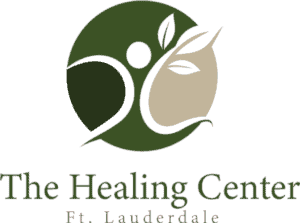Using drugs and alcohol can change the chemical makeup of a person’s brain. When this happens, physical dependency can and generally does occur. When it comes to withdrawal symptoms, different people experience different things. These symptoms vary by substance, and there is a wide variety of things that people feel. Regardless of the symptoms, there are ways of managing withdrawal symptoms.
What Are Withdrawals?
In order to learn ways to manage withdrawal symptoms, a person has to really understand what they are. The definition of ‘withdrawal symptoms’ is “A wide range of physical or emotional disorders, including nervousness, headaches, and insomnia, that occur when an individual who is addicted to a substance (such as drugs or alcohol) stops using the substance”. This describes the physical and neurological symptoms that occur when you stop drinking or using drugs.
When you decide to stop using substances, your body begins to process, or detox from, the substance you are using. This is known as withdrawal. Managing these withdrawal symptoms is best done with professional help, due to the varying degree of danger associated with the withdrawal process.
Based on substance, the withdrawal symptoms vary. Some are more common than others, and less dangerous, while others are far more dangerous and uncommon. Common symptoms of withdrawal include, but are not limited to:
- Nausea
- Vomiting
- Diarrhea
- Restlessness
- Depression and anxiety
- Irritability
- Headaches
- Muscle and body aches
- Chills
- Shakes
- Heart palpitations
No matter what you feel though, there are ways to manage withdrawal symptoms. Seeking professional help is the best way to ensure you are safe and as comfortable as possible when you go through withdrawal.
Managing Withdrawal Symptoms
When you are experiencing withdrawal symptoms, it can be an uncomfortable experience. Feeling the physical symptoms can lead a person to continue self destructing, and there is the mental obsession that comes along with trying to stop using whatever substance is causing the problem. There are ways to manage withdrawal symptoms, to try to make sure you are as safe and comfortable as you can be.
Positive, and healthy ways of managing withdrawal symptoms can include things such as rest, fluids, and distraction. Here are some of the healthier, more positive things you can do in order to get through, and manage your withdrawal symptoms:
- Rest and Relaxation: Taking the time to recuperate and let your body heal itself is vital to getting through all of the uncomfortable physical symptoms you can feel. Your body is learning to live without the substance that has been fed to it for any period of time. During this time, sleeping allows for your body to better combat the physical symptoms as well as the cravings that come along with withdrawal. Try meditation or breathing techniques, to help with the anxiety and restlessness.
- Distraction: When managing withdrawal symptoms, the mental obsession and cravings can be stronger than if you aren’t feeling the physical things that come along with stopping substance use. Keeping your mind busy with activities that you enjoy, and distracting yourself from the things you think or even feel, will help you to get through another day without the substance.
- Stay Hydrated: Drinking lots of water is another way to manage withdrawal symptoms. Ensuring that your body is hydrated can help to alleviate some of the physical symptoms you may be feeling. Drinking water allows for your body to get rid of all of the toxins that have been put into it. Flushing your system of these substances can help to get through the physical symptoms quicker.
- Eat Healthy, and Nutritious Foods: Another vital part of managing withdrawal symptoms is ensuring that the things you are putting into your body from here on out, are good for you. Throughout active addiction, you’ve possibly neglected your body’s nutrition. Replacing the substance with nutritious, healthy foods and hydration can help to speed up the physical recovery process.
- Seek Professional Help: You don’t have to manage withdrawal symptoms on your own. It is best to seek professional help, as soon as possible. Withdrawal symptoms can be dangerous and uncomfortable. At The Healing Center Fort Lauderdale, FL it is our mission to help people get through not only the physical aspects of withdrawal, but also the mental and emotional symptoms they may be feeling.
Get Help For Managing Withdrawal Symptoms In Fort Lauderdale, FL
Reaching out for help is the first step on your journey to recovery. Our team of professionals is here to help you manage your withdrawal symptoms, and learn to get through triggers and cravings during and after withdrawal. We use a variety of therapies and treatment programs to help you learn to live life without the substances. You are not alone, and there is help out there for you. Reach out to our admissions team today and begin your journey here at The Healing Center, in Fort Lauderdale, FL.
A solid foundation can help to ensure that you can avoid relapse once you begin the journey of recovery. Learning the coping skills, and ways to avoid triggers is essential in staying free of the chains of addiction. Just as important, knowing and practicing the proven ways of managing withdrawal symptoms can help to make this transition as safe as possible.






